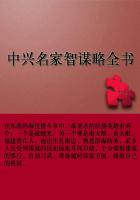Some people burn their loose hair to save it from falling into the hands of sorcerers. This is done by the Patagonians and some of the Victorian tribes. In the Upper Vosges they say that you should never leave the clippings of your hair and nails lying about, but burn them to hinder the sorcerers from using them against you. For the same reason Italian women either burn their loose hairs or throw them into a place where no one is likely to look for them. The almost universal dread of witchcraft induces the West African negroes, the Makololo of South Africa, and the Tahitians to burn or bury their shorn hair. In the Tyrol many people burn their hair lest the witches should use it to raise thunderstorms; others burn or bury it to prevent the birds from lining their nests with it, which would cause the heads from which the hair came to ache.
This destruction of the hair and nails plainly involves an inconsistency of thought. The object of the destruction is avowedly to prevent these severed portions of the body from being used by sorcerers. But the possibility of their being so used depends upon the supposed sympathetic connexion between them and the man from whom they were severed. And if this sympathetic connexion still exists, clearly these severed portions cannot be destroyed without injury to the man.
9. Spittle tabooed.
THE SAME fear of witchcraft which has led so many people to hide or destroy their loose hair and nails has induced other or the same people to treat their spittle in a like fashion. For on the principles of sympathetic magic the spittle is part of the man, and whatever is done to it will have a corresponding effect on him. A Chilote Indian, who has gathered up the spittle of an enemy, will put it in a potato, and hang the potato in the smoke, uttering certain spells as he does so in the belief that his foe will waste away as the potato dries in the smoke. Or he will put the spittle in a frog and throw the animal into an inaccessible, unnavigable river, which will make the victim quake and shake with ague. The natives of Urewera, a district of New Zealand, enjoyed a high reputation for their skill in magic. It was said that they made use of people's spittle to bewitch them. Hence visitors were careful to conceal their spittle, lest they should furnish these wizards with a handle for working them harm. Similarly among some tribes of South Africa no man will spit when an enemy is near, lest his foe should find the spittle and give it to a wizard, who would then mix it with magical ingredients so as to injure the person from whom it fell. Even in a man's own house his saliva is carefully swept away and obliterated for a similar reason.
If common folk are thus cautious, it is natural that kings and chiefs should be doubly so. In the Sandwich Islands chiefs were attended by a confidential servant bearing a portable spittoon, and the deposit was carefully buried every morning to put it out of the reach of sorcerers. On the Slave Coast, for the same reason, whenever a king or chief expectorates, the saliva is scrupulously gathered up and hidden or buried. The same precautions are taken for the same reason with the spittle of the chief of Tabali in Southern Nigeria.
The magical use to which spittle may be put marks it out, like blood or nail-parings, as a suitable material basis for a covenant, since by exchanging their saliva the covenanting parties give each other a guarantee of good faith. If either of them afterwards foreswears himself, the other can punish his perfidy by a magical treatment of the purjurer's spittle which he has in his custody. Thus when the Wajagga of East Africa desire to make a covenant, the two parties will sometimes sit down with a bowl of milk or beer between them, and after uttering an incantation over the beverage they each take a mouthful of the milk or beer and spit it into the other's mouth. In urgent cases, when there is no time to spend on ceremony, the two will simply spit into each other's mouth, which seals the covenant just as well.
10. Foods tabooed.
AS MIGHT have been expected, the superstitions of the savage cluster thick about the subject of food; and he abstains from eating many animals and plants, wholesome enough in themselves, which for one reason or another he fancies would prove dangerous or fatal to the eater. Examples of such abstinence are too familiar and far too numerous to quote. But if the ordinary man is thus deterred by superstitious fear from partaking of various foods, the restraints of this kind which are laid upon sacred or tabooed persons, such as kings and priests, are still more numerous and stringent. We have already seen that the Flamen Dialis was forbidden to eat or even name several plants and animals, and that the flesh diet of Egyptian kings was restricted to veal and goose. In antiquity many priests and many kings of barbarous peoples abstained wholly from a flesh diet. The Gangas or fetish priests of the Loango Coast are forbidden to eat or even see a variety of animals and fish, in consequence of which their flesh diet is extremely limited; often they live only on herbs and roots, though they may drink fresh blood. The heir to the throne of Loango is forbidden from infancy to eat pork; from early childhood he is interdicted the use of the cola fruit in company; at puberty he is taught by a priest not to partake of fowls except such as he has himself killed and cooked; and so the number of taboos goes on increasing with his years. In Fernando Po the king after installation is forbidden to eat cocco (arum acaule), deer, and porcupine, which are the ordinary foods of the people. The head chief of the Masai may eat nothing but milk, honey, and the roasted livers of goats; for if he partook of any other food he would lose his power of soothsaying and of compounding charms.














